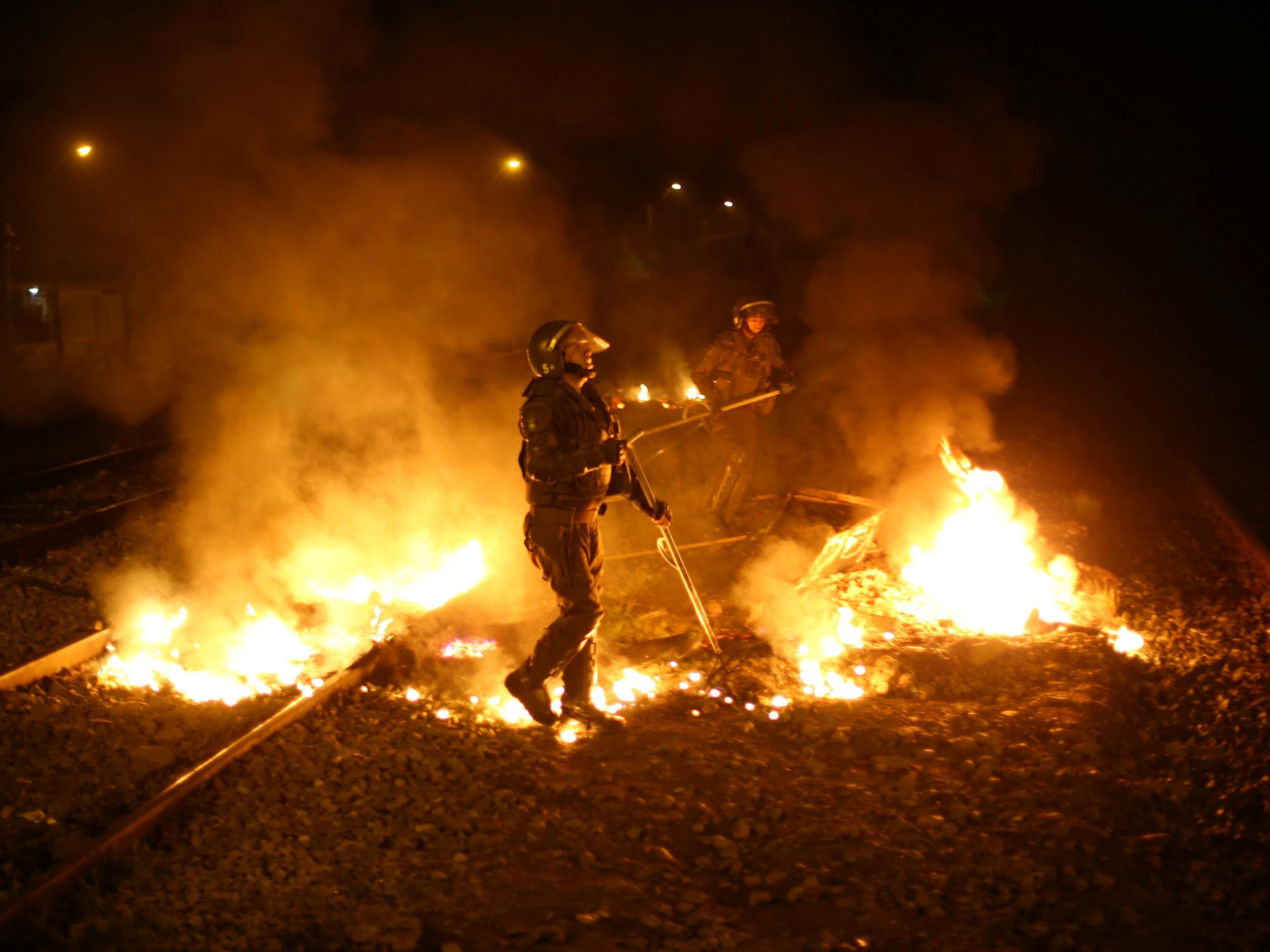How a small town is fighting back against industrial waste dumping in Chile
With just 17,000 residents, it’s the last stop for much of the rubbish produced by a city of 7 million

The trains seem to never stop.
One after another, they haul more than 12 tons of rubbish daily to the small Chilean community of Tiltil, 35 miles north-west of Santiago, the equivalent of at least two-thirds of the capital’s municipal waste.
This town of 17,000 is the last stop for much of the rubbish produced by a city of 7 million.
And now there will be more.
The minister’s committee, a gathering of high-ranking Chilean political officials who decide the fate of controversial projects, last year approved the construction of a sprawling new industrial waste-processing plant here.
Already, Tiltil, a desert-dry community of yellow hills fringed with cactus fruit farms, has more than 30 industrial projects. Among them: several mining waste sites, a pig farm, a cement plant and Lomas Los Colorados, one of Santiago’s largest waste dumps.
With this newly approved facility, operated by Ciclo, a local waste management company, Tiltil will become the last stop for more than half the industrial waste produced from the northern Chilean mining region of Atacama to Bio Bio province in the south, according to a report from Chile’s congress.
The community has protested, blocking the train tracks that funnel rubbish north, and Route 5, known locally as the Pan-American Highway and a major trucking thoroughfare that passes through the city.
“Why Tiltil again? Why must Tiltil solve the environmental problems of 8 million inhabitants?” said Tiltil Mayor Nelson Orellana on a radio programme following the project’s approval.
The national committee that approved the project says safeguards have been put in place to minimise contamination or impact on townspeople.
Ciclo says that the site is the only one within the greater Santiago region that is “apt and possible” for an industrial waste site of this magnitude.
“There is no health risk for the population,” Ciclo says on its website.
The company hopes to see the project begin operation in 2019, according to its promotional materials.
Meanwhile, Santiago’s rubbish problem is only getting worse.
A 2015 fire at another large landfill site in Santa Marta – much nearer the city centre than Tiltil – put citizens here on edge, as it shrouded Santiago’s skyscrapers and crowded streets in toxic dust.
Only 10 per cent of the country’s rubbish is recycled, according to environment ministry statistics – putting the country near the bottom of Organisation for Economic Cooperation and Development nations.
Reporting by Dave Sherwood
Reuters
Join our commenting forum
Join thought-provoking conversations, follow other Independent readers and see their replies
Comments